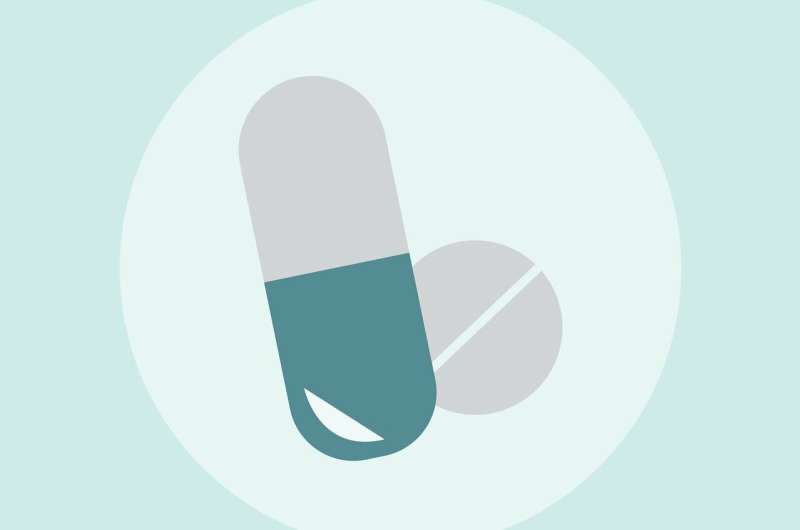This article has been reviewed according to Science X's editorial process and policies. Editors have highlighted the following attributes while ensuring the content's credibility:
fact-checked
trusted source
proofread
Study finds commonly prescribed hypertension drug, amlodipine, not actually dangerous

A new paper in the journal Function finds that a widely prescribed drug for treating hypertension, amlodipine, is not dangerous for patients, despite recent concerns from researchers and clinicians that taking amlodipine may have risks.
Approximately 700,000 Americans die from hypertension each year and researchers believe some 116 million Americans (and one in five adults worldwide) have the disease, which is responsible for 7.6 million deaths per year. If untreated, hypertension significantly increases the risk of premature death through heart attack, stroke, or kidney disease.
One widely prescribed drug for treating hypertension is amlodipine, now taken regularly in pill form by over 70 million Americans. Amlodipine inhibits a type of calcium channel that is found on blood vessels. When the calcium channel opens, calcium enters the muscle and causes it to constrict, increasing blood pressure. Amlodipine prevents calcium from coming in, leading to vessel relaxation and a decrease in blood pressure.
Recently some researchers have questioned the benefit of amlodipine for treating hypertension. Studies suggested that amlodipine may activate a different type of calcium channel, resulting in changes to blood vessels and an increase in heart failure in patients. Removing amlodipine as a prescribed anti-hypertensive medication carries significant health implications, since hypertension is such a common health condition.
A new study by research teams from National Institutes of Health and Glasgow University finds that taking amlodipine is unlikely to result in an increase in heart failure in patients. The researchers found that amlodipine appears to have unique chemical properties that caused the drug to mimic the calcium channel activation, without in fact opening the channels as clinicians worried.
When the study's authors controlled for these chemical properties, they found that amlodipine did not activate calcium channels. A meta-analysis combining clinical trials and a prospective real-world analysis both showed that amlodipine was not associated with increased heart failure or other cardiovascular problems.
"Removal of amlodipine as a front-line therapy would most likely increase deaths from hypertension dramatically," said Anant Parekh, one of the study's authors. "The study recommends that amlodipine remain a first-line treatment for high blood pressure."
More information: Gary Bird et al, A reappraisal of the effects of L-type Ca2+ channel blockers on store-operated Ca2+ entry and heart failure, Function (2023). DOI: 10.1093/function/zqad047

















